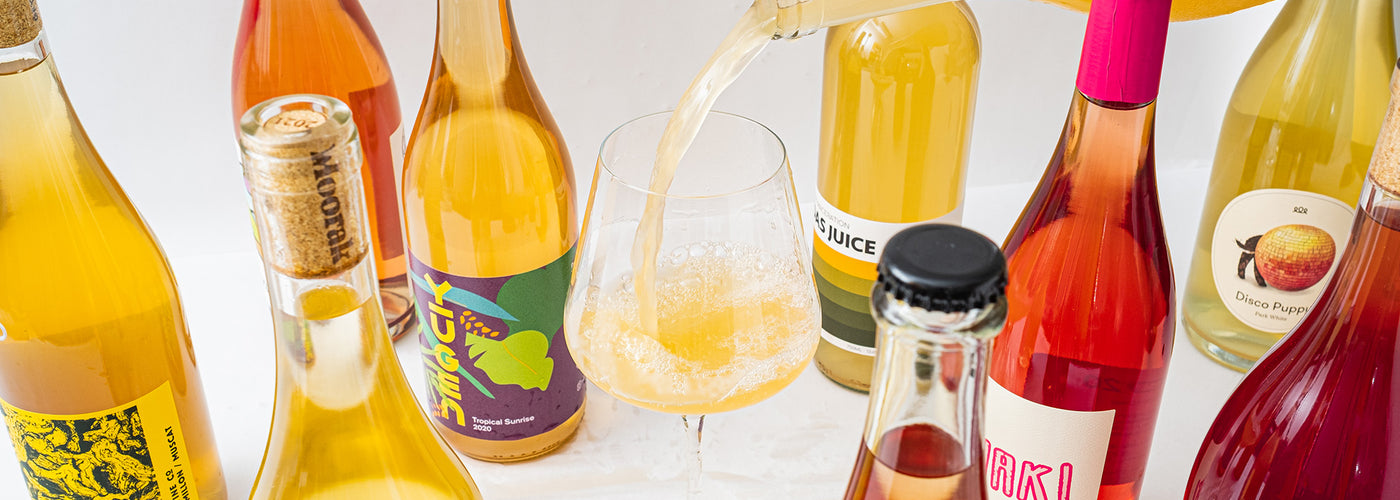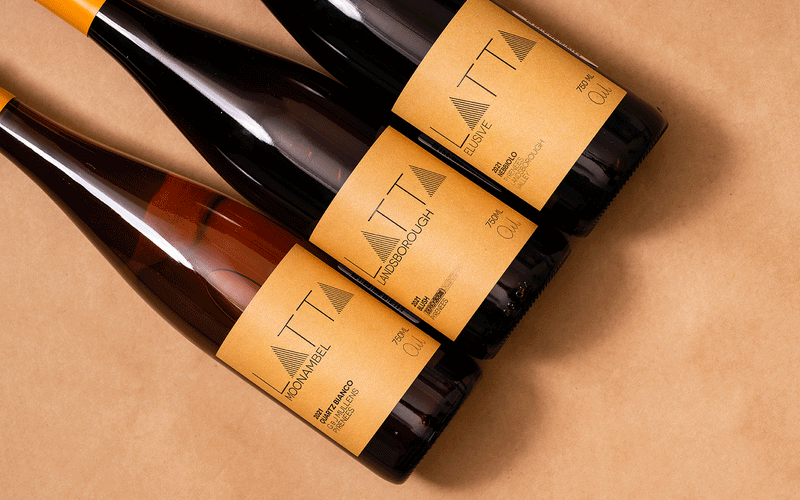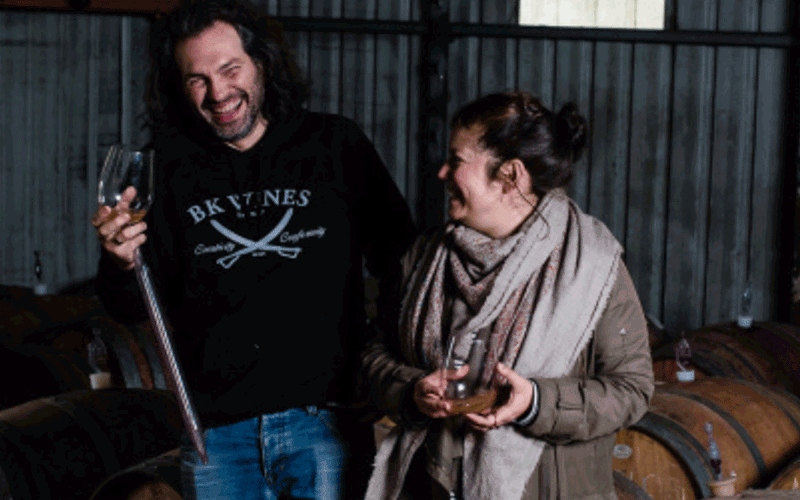Published Sun, Jun 26, 2022
WHAT MAKES A WINE NATURAL?
Are you ready for your crash course in natural wine? Probably not. Oh well. You’re getting one anyway.
Firstly, the feeling. Natural wine is GREAT. It tastes good, it looks good, it puts a little rose in that cheek dimple you didn’t know you had. That’s why you’re here. You get it.
Secondly, the facts. ‘Natural wine’ is an umbrella term that shelters many different thoughts and practices, but they all agree on serving the same purpose. That is, to protect the land that the grapes were grown on by looking after it in a sustainable fashion, increasing the longevity of the Earth’s resources so we may continue to co-exist.
Natural winemakers grow and pick grapes, then turn these into wine through fermentation. The grapes themselves are not sprayed with chemicals – instead, complicated and often laborious processes are undertaken to naturally protect them. Delicate mixtures made from medicinal plants, used by generations of growers. Natural winemakers rely on picking teams with strong hands, backs and secateurs, to harvest manually. When the fruit comes into the winery (or shed), the winemakers rely on the health and bio-complexity of their vineyard, with its hardy microbiome allowed to grow without damaging chemicals, to ferment the wine. Wild yeast, lactobacillus, biogenic amines. All these little guys make up the troupe that ferments that glorious fruit juice into the glorious natural wine juice.

Then, the rest is up to the vessel. Wood, steel, clay, glass, ceramic, concrete…the list goes on. Some of these vessels are inert and oxygen proof, so they don’t impart any flavour. Stainless steel, glass, ceramic. This is perfect for preserving the aromatics and fruit quality of the wine. Others have porosity that mitigates the flow of oxygen, and encourage more reactions during the ferment. You might get more texture, nuttiness, savouriness. Then, there’s wood. Wood has a flavour. Have you ever licked a tree? Different types of timber impart different flavours like vanillin, toast, tobacco, banana. The vessel is one of the few important ways that the winemaker can leave their own little esoteric mark on a natural wine.
Other than that, there is nothing added and nothing taken away to manipulate the outcome of a natural wine; spare a splash of sulphur to preserve. Sulphur has been around as a natural preservative for almost as long as wine itself. It is widely considered the only acceptable additive for natural winemaking, outside of zero/zero producers. Conventional winemakers add upwards of 25 times the amount of sulphur that would ever be added to a natural wine, enough to consider the sulphur in your natty to be “trace levels”. Think of it like swimming on the other side of a fifty-metre pool when someone who is walking, drinking lemonade, accidentally slips, causing a bit of their fizzy drink to spill into the pool. Anyway, we can talk about sulphur in all its slippery, twisty forms another time.
The resulting wines from these wild processes are the purest reflection of the site they were grown on. Sometimes they can be cloudy, unusual, orange, pink, crimson, terracotta, loud, vibrant, challenging, tickly, moving, gentle, plush, savoury, sweet, glittery, mineral-rich, weird, short lived, long lived, fruitful, floral, sour. They can spur nostalgia, or they can be lost in a fugue state of fun with friends. They can be anything. It is to say that the wines that are made through these minimal intervention processes are not necessarily one thing. They can be the weirdest thing you’ve ever put in your mouth, or they can taste like wines that your parents have been drinking for years. The difference with them is that they were created thoughtfully, purposefully, with the sustainability of the Earth in mind. Why for most, they taste: alive.
Oh, and one more thing. Think natural wine won’t give you a hangover? Don’t test the waters, from one experienced drinker to another. Drink well, but drink in moderation ;)


